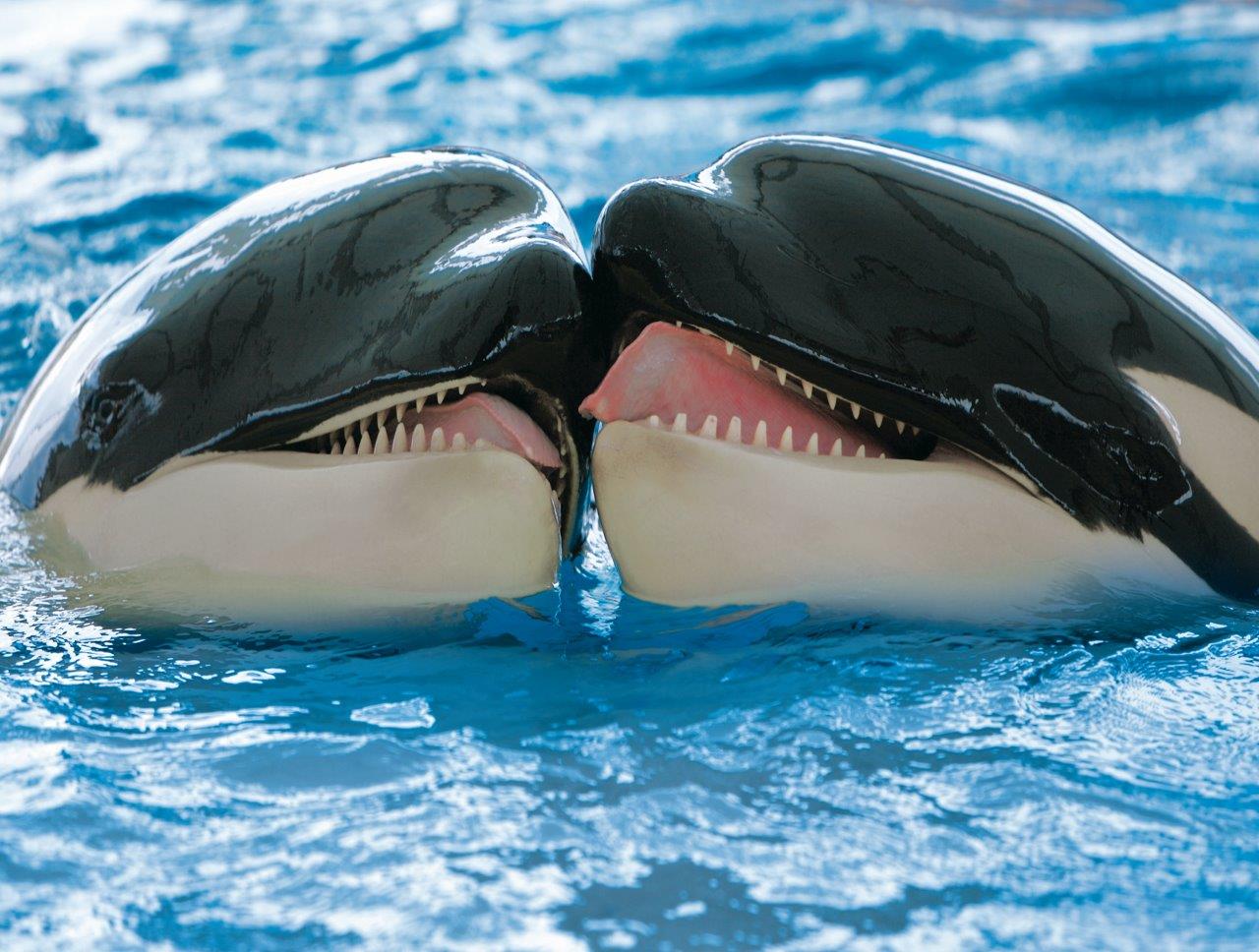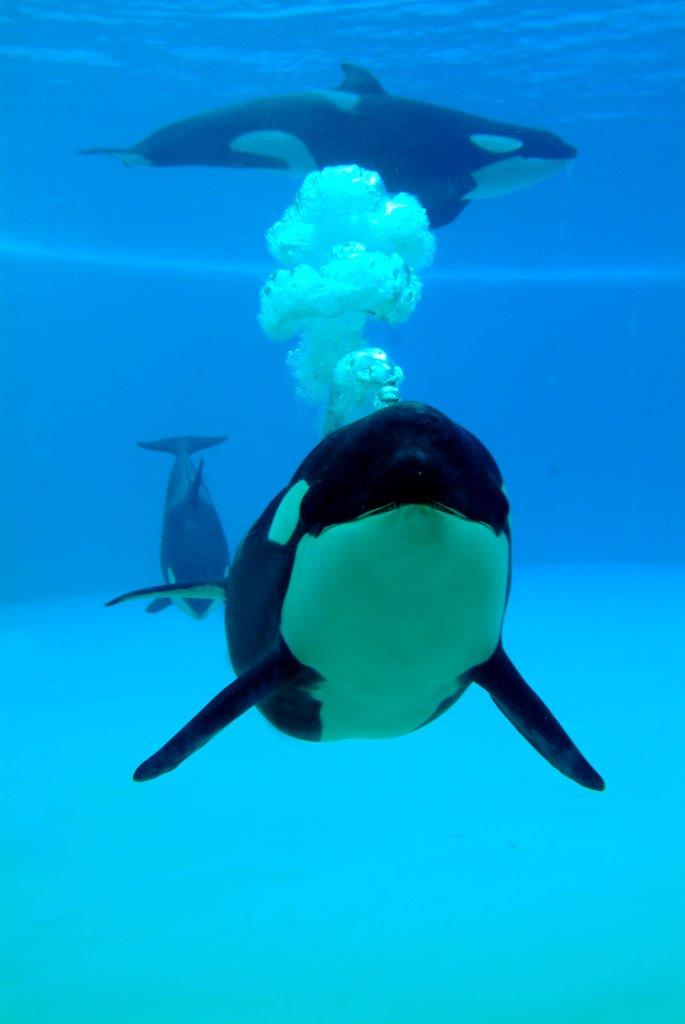A study recently published in the journal Applied Animal Behaviour Science, in which Loro Parque has participated, has evaluated for the first time the personality and well-being of 26 orcas, and has concluded that the most extroverted and dominant specimens experience greater subjective well-being, i.e., they experience more positive emotions and feel more satisfied. This pioneering project has built on previous studies initiated at Loro Parque on personality and has used questionnaires for the assessment of well-being based on previous studies carried out with humans.
The aim of the research was, on the one hand, to demonstrate the usefulness of a questionnaire to assess well-being in cetaceans and, on the other hand, to examine the relationships between personality, well-being and subjective well-being in the species. To achieve this, three different questionnaires were used: one previously applied to the species; another to humans, primates and felines; and another of distinctive well-being for orcas that included positive and negative well-being indicators related to social and environmental interactions, physical condition, species-typical and abnormal behaviours, ability to accept situations, and relationship with fellow whales and humans, among others.
In this sense, it is the trainers and veterinarians, who know the animals in detail after years of working with them, who offer the best results when it comes to filling in the questionnaires and subjectively assessing the welfare of each animal. The project, designed and carried out at Loro Parque, sought the collaboration of SeaWorld Orlando, SeaWorld San Diego and SeaWorld San Antonio/Texas to increase the number of animals analysed and obtain statistically significant results.

Dr. Javier Almunia, director of the Loro Parque Foundation, pointed out that “this work shows that zoos and aquariums are at the forefront of research into the welfare of exotic animals” and stressed “how important it is to continue with this type of research into other species”.
Dr. Yulán Úbeda, author of the study and researcher at the University of Girona, explained that, to date, “there was a protocol for assessing subjective well-being in
dolphins, but its validity had not been evaluated, so this is the first time that the validity of a questionnaire to assess the well-being of a cetacean has been empirically proven”.
Furthermore, she added, in relation to the correlation found between the obtained factors of personality, well-being and subjective well-being, such as subjective well-being being related to extraversion and dominance, and negatively related to nervousness or the presence of abnormal behaviour, that this had already been observed before in humans, chimpanzees, gorillas and orangutans, which would seem to indicate a certain evolutionary convergence.














